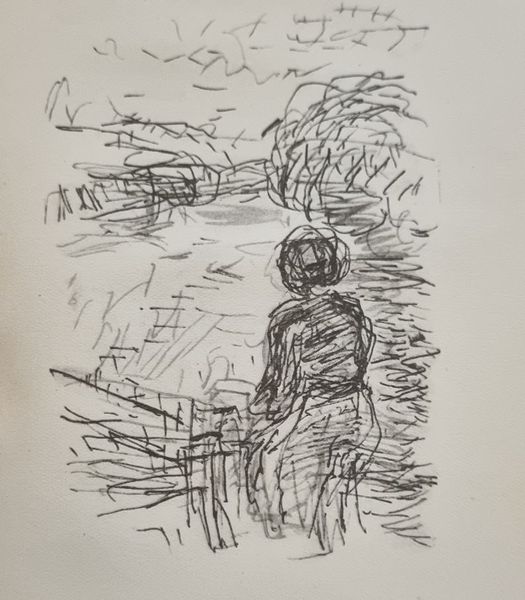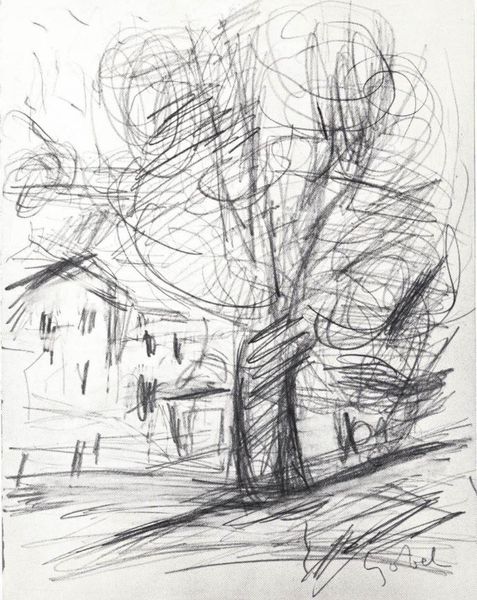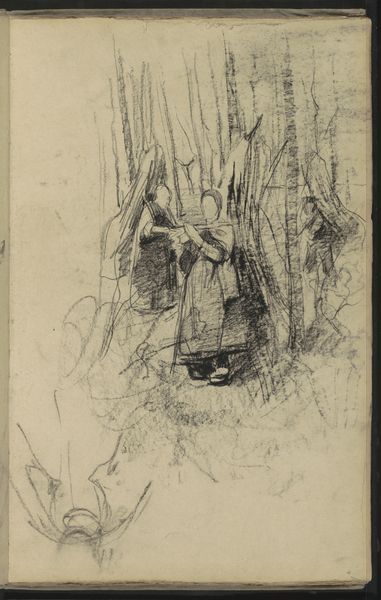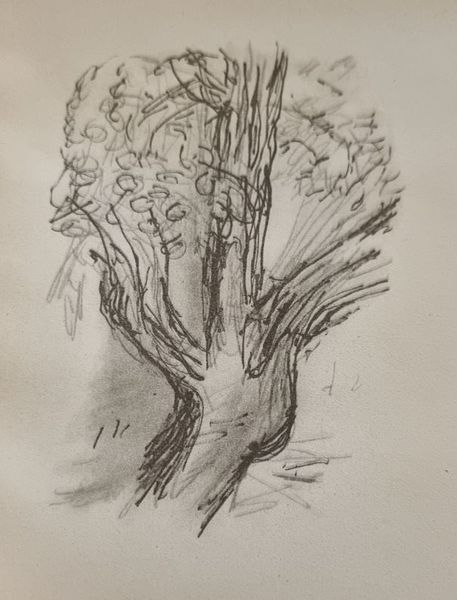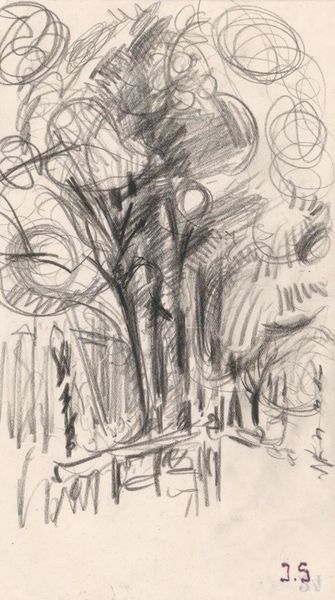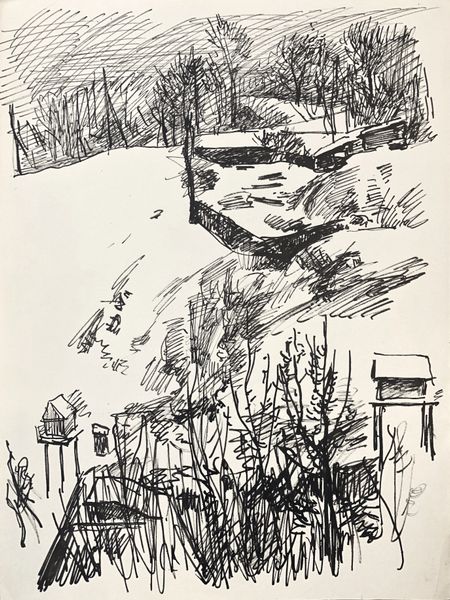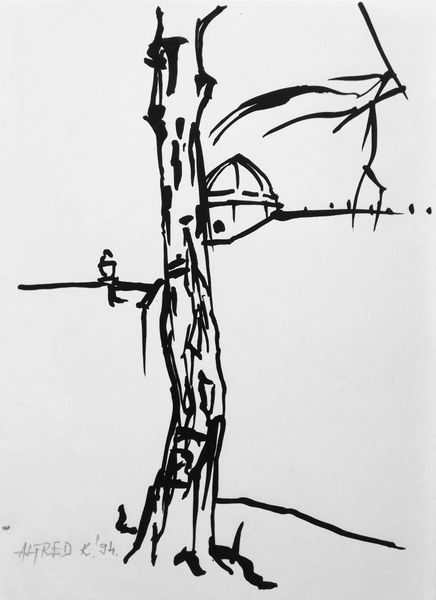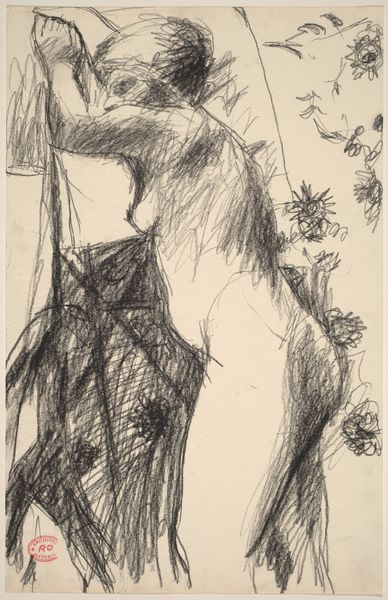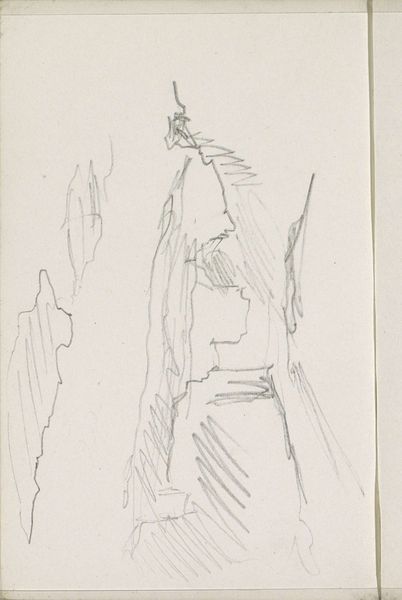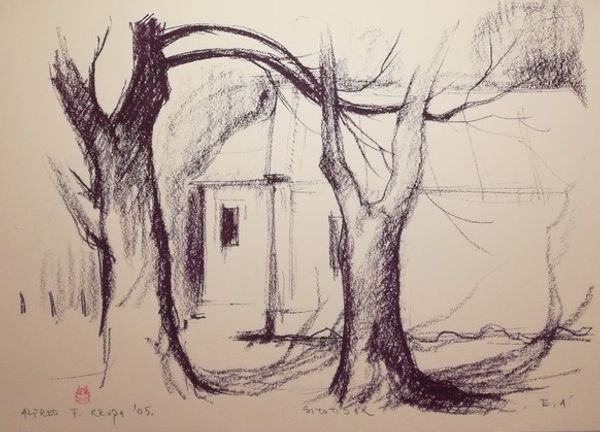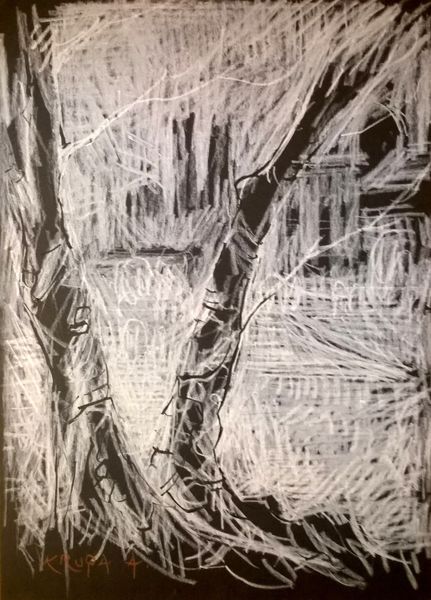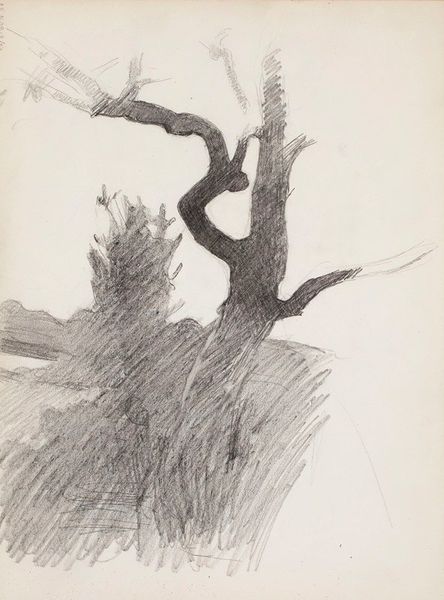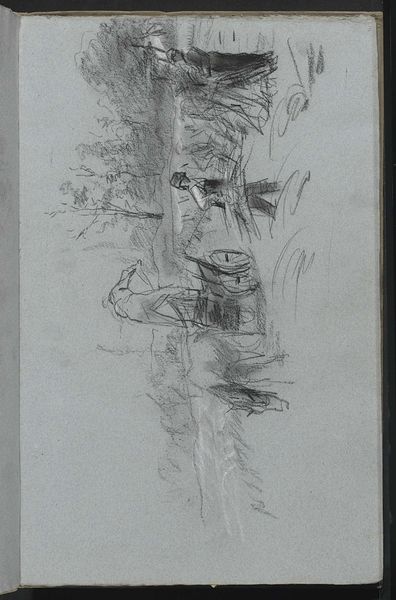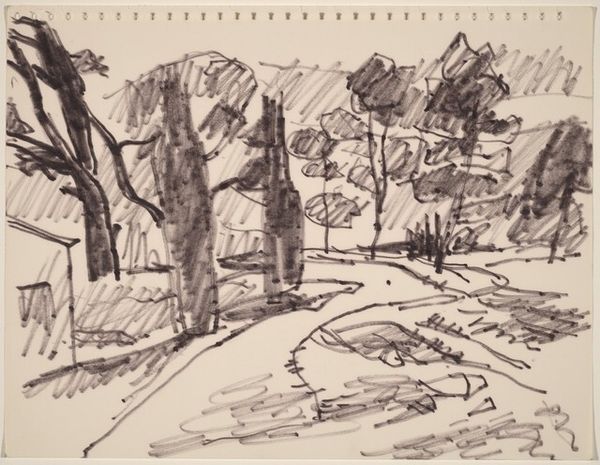
drawing, pencil
#
drawing
#
landscape
#
pencil
#
line
Copyright: Bela Czobel,Fair Use
Curator: I find myself captivated by the seemingly casual sketch, titled “Tree, Autumn Garden Book Illustration” crafted by Czóbel Béla around 1956. Editor: It's striking, isn't it? A flurry of pencil lines, almost scribbled, but with a palpable sense of movement and energy, hinting at something wild and untamed, perhaps like bare tree limbs in the bitter winds? Curator: Indeed. We see a representation, or more appropriately, an evocative indication of a landscape. Consider, however, the political atmosphere of Hungary in the late 1950s. This artwork was born amid an environment of post-revolutionary crackdowns and the tightening of ideological controls over artistic expression. The raw, almost unrefined nature of the piece can be viewed as a subtle form of resistance. A retreat into the personal and natural in response to an oppressively regulated public sphere. Editor: That's fascinating to consider. I’m drawn to the evident use of pencil, the smudges, the variations in pressure. It speaks to the artist's immediate interaction with the materials, with the labor involved in transforming a blank surface. It emphasizes that even art appearing spontaneous still necessitates skill and manual effort. Were such resources available in that era or were the basic supplies difficult to obtain? Curator: That’s precisely it! And the seeming artlessness also masks the reality that Czóbel had embraced post-impressionism much earlier. Yet the adoption of plain landscapes and the reliance on modest, humble tools reflects the era's ambivalence towards displays of wealth and artistry, almost inviting dialogue about consumerism during times of social unrest. Editor: Yes, there’s an undeniable intimacy conveyed here, almost a secret revealed. Not some grand proclamation, but a humble testament to the power of nature, expressed via humble materials like graphite, in that moment. Curator: An almost defiant assertion of beauty and freedom that circumvented censorship by seeking refuge in the apolitical depiction of nature, isn't it? This piece encourages reflection upon the subtle strategies adopted by artists during tumultuous historical contexts. Editor: Exactly, making a silent yet profound statement through material honesty and unassuming skill. Curator: Indeed, let’s carry that awareness with us. Editor: Agreed. A powerful lens to understand more profoundly the human drive to create and endure!
Comments
No comments
Be the first to comment and join the conversation on the ultimate creative platform.
